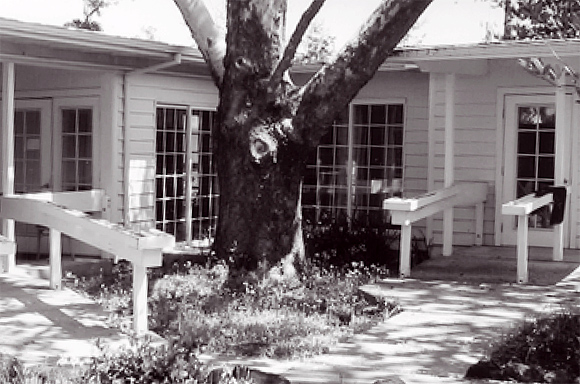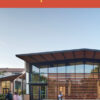Margo Warnecke-Merck came from New York to Northern California in 1996, leaving an executive position with John Carl Warnecke and Associates and devoting herself to providing housing for lower-income families and persons with disabilities in Sonoma County. She brought along the business acumen and skills honed in a successful career in project management, design, and development. She’s comfortable talking development minutiae to bankers, lawyers, developers, and realtors. She’s also at home navigating through governmental planning processes and funding sources. She has a great sense of where, who, and how hard to push to get something done.
While not pursuing a traditional architectural career path, Warnecke-Merck feels that the work she is doing in affordable housing is actually the cutting edge of where architecture should be going. The real clients are “the people,” not the developers or the corporations. Too few architects understand how housing is developed through good housing element policies, through advocacy for very-low-income people with disabilities, through land-use planning, legislation, and—if need be—the court system. Developing special- needs and multi-family housing puts architects doing this work right in the middle of today’s social, environmental, political, and economic realities. This is where society’s most pressing problems and solutions lie.
In her role as president of the non-profit Community Housing Development Corporation of Santa Rosa, Warnecke-Merck has spearheaded efforts to build housing for very-low-income individuals in Sonoma Country, one of the most expensive places to live in the state. For a recently completed project, she put together a joint venture partnership of several non-profits to develop an innovative project of sixteen units of permanent supportive housing. Financing for the project was provided by the Corporation for Supportive Housing, the City of Santa Rosa, and other sources. These are groups that have not previously worked together, but, through Warnecke- Merck’s efforts, they are providing much needed housing.
Warnecke-Merck has a fierce determination to see that all persons in our communities have decent affordable housing. Do not tell her that land is too expensive or the constraints too great; in her mind, there are plenty of infill sites and possible joint ventures with for-profit developers to keep her non-profit busy. Her enthusiasm and energy are contagious— it’s hard to be around her for more than a few minutes without being enlisted in one or more of her projects.
Warnecke-Merck has a special talent for building coalitions and consensus. She’s organized coalitions of groups that had previously been at loggerheads, including environmental groups, labor unions, housing developers, homeless advocates, church groups, and community groups. She is one of the founding members of the Sonoma County Housing Coalition, a broad-based coalition of diverse groups and interests. She also currently serves on the governing council of the newly formed Housing Trust Sonoma County.
Warnecke-Merck’s unique talent for bringing diverse interests together to deal with the affordable housing crisis is most apparent in her work on behalf of persons with disabilities. She was instrumental in building a statewide coalition to advocate for passage of legislation to prohibit local governments from discriminating against persons with disabilities in zoning and land use policies and activities. The 2002 legislation, known as SB 520, also requires local governments to conduct periodic assessments of housing needs; to remove constraints in zoning and land use ordinances to housing; and to provide reasonable accommodation to housing developers, providers, and consumers.
In addition to her many other activities, Warnecke-Merck has been a major catalyst, advocate, and activist in a diverse coalition of groups and individuals known as the Housing Advocacy Group (HAG). This group works to encourage housing development for lower-income households and persons with special needs. In addition to those avenues, HAG has successfully filed lawsuits against local governments that fail to meet their affordable housing obligations. The results have been significant: Santa Rosa opened a new 40-bed shelter, with plans for an additional 40 beds to open next year, and the County also opened a 40-bed shelter. Warnecke-Merck understands that getting public officials to do the right thing sometimes requires more than just being “nice” to them. If necessary, she is prepared to be not so nice. For someone as nice as she, that takes courage.
Originally published 2nd quarter 2005, in arcCA 05.2, “Other Business.”






